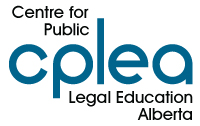There are many ways you can help someone experiencing abuse.
- If the person is in danger, call 911.
- Start a conversation. Do it somewhere safe and private. Be gentle and kind. You can start by simply letting the person know you care for them. Ask them questions that show you are concerned, supportive and someone they can talk to.
- Talk about specific behaviours or incidents you know of. For example: “I noticed the way your partner reacted when I dropped you off late last time we went out. It was a little scary to me to see how angry they were. Do they react like that often?” Often a person experiencing abuse will defend the person causing harm. Let them know you’re concerned about them.
- Offer resources and information. Remember though, you cannot ‘fix’ the situation. Connect the person with resources in the community that can help them.
Frequently Asked Questions
Is it abuse if someone I know has a partner who is a jerk?
Maybe. Relationships can be healthy without being abusive. But an unhealthy relationship can become abusive. If you are worried about the person, there are some signs you can watch for. Read more about the signs and kinds of abuse on the What is Abuse? page.
How can I help someone who is not ready to leave their relationship?
You can:
- let them know you support them and are not judging them
- be patient
- make a support plan
- help them make a safety plan
- help them find supports
Remember, you cannot make someone do something. But you can always be available to help.
Should I get involved if I know someone is experiencing abuse?
Seeing someone you care about in an abusive relationship can be very painful. Especially if they do not leave the relationship.
It is very important to stay in contact with someone experiencing abuse. Often the person causing harm will cut the person off from their support network, leaving the person dependent on the person causing harm. The person causing harm may say friends and family do not care about them. A person who feels supported will be able to leave the relationship more easily and safely.
Is it their fault if they provoke the abuse?
NO. People causing harm often excuse their behaviour by saying the victim provoked them or egged them on. This is a tactic the person causing harm uses to avoid responsibility for their actions. No one is responsible for another person’s actions. And no one deserves to be abused.
Why do people stay in abusive relationships? Why won’t they just leave?
There are many reasons why someone stays in an abusive relationship.
- The person experiencing abuse may want the abuse to stop but not the relationship to end.
- The person causing harm may threaten to hurt themselves, the person experiencing abuse or their children if the relationship ends.
- The person causing harm may be controlling and manipulating the other person. They may be telling the person experiencing abuse that no one will ever love them. These tactics can affect the person’s self-esteem. And eventually the person may believe the statements.
- The cycle of abuse often includes a period of reconciliation where the person causing harm changes behaviour for a little while. They may be very sweet, attentive and loving. During this time, the person experiencing abuse may believe the abuse has stopped for good.
- The end of a relationship can be a very dangerous time for a person experiencing abuse. The person causing harm may think they are losing control and may react much more violently.



